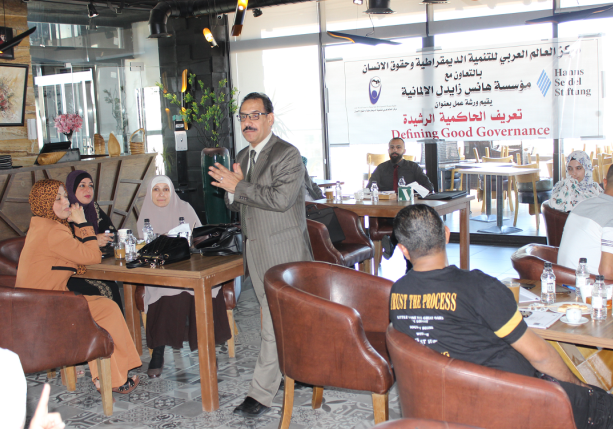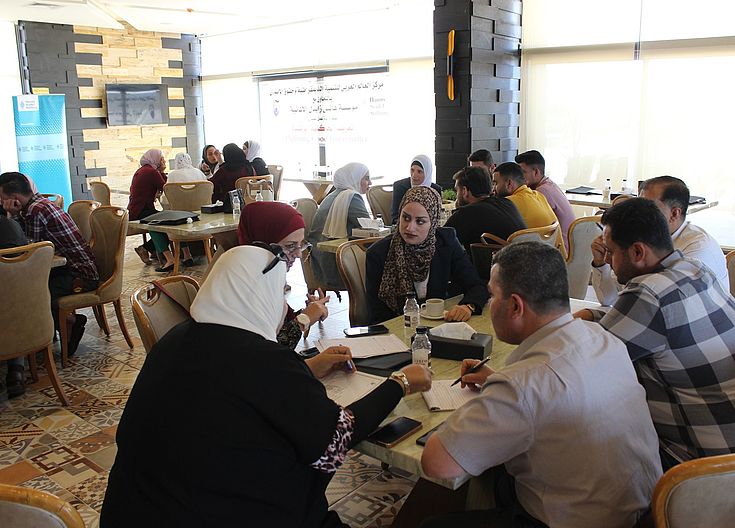Proceeding from the vision of His Majesty King Abdullah II to establish principles to uphold the country, such as justice, equality and the rule of law, in addition to combating corruption, and with the aim of strengthening the values of integrity, transparency, credibility and accountability in various ministries, the Arab World Center for Democratic Development and Human Rights, in partnership with the German Hanns Seidel Foundation, organized a workshop in Irbid, over two days on the definition of good governance, with the participation of individuals from various ministries and different governorates.
#Lamarkazia
Defining Good Governance
According to the Director of the Arab World Center, Dr. Amira Mustafa, this workshop provides the participants with the opportunity to practice and apply these concepts and values by developing their skills and and abilities. In addition to work as a team in planning, organizing, managing conflict, leadership, solving problems and taking responsibility by incorporating models based on good and rational governance, as well as its values in integrity and accountability, in addition to the tools of transparency, accountability, respect and citizenship.
Director of Projects at the German Hanns Seidel Foundation, Amman Office, Ms. Ulla Al Shraideh, said in a statement that the correct understanding of democracy and the participation of all segments of society in the political process should be acquired by all generations. Al Shraideh added that the only way to motivate this generation is through commitment and responsibility, as real participation in political life requires political understanding among citizens.

The two trainers in the workshop, Prof. Dr. Hamdi Al-Qubeilat and Prof. Dr. Muhammad Al-Thneibat explained the definition of good governance, and they also spoke and debated with the participants about the application and elements of governance, as well as the workshop included practical exercises.
The trainers indicated that the concept of good governance is a process by which public institutions manage public resources and ensure the implementation of human rights. The real test of good governance lies in the extent to which it fulfils the promise of commitment to human rights.
They stated that the system of good governance is based on:
- Consecrate the values of justice, democracy, deliberation and human rights.
- Exercising authority within a legitimate and legal framework.
- Institutionalizing the system of government through the mechanism of fair elections and in accordance with a true representation of the parties to the political process.
- Balanced separation of powers.
They emphasized that the rule of law is the basic principle of good governance. Where all individuals are subject to, and disciplined by, the law, and not at the discretion of persons or groups. Thus, the rule of law means that the law is above all, and is applied fairly to everyone, whether he is the ruler or the ruled.

During a discussion about good governance in local administration in general, and the legal responsibility of members of local councils, they indicated that responsibility is one of the most important values whose representation leads to success in life at all levels. Responsibility is a presumption of assignment; it means that a person is entrusted with the performance of certain duties that are placed upon him, so that another party holds him/her accountable for them and for his/her success or failure.
They added that legal responsibility is the one that entails a legal penalty for violating one of the duties or obligations, and it is of several types: (criminal / civil / political / administrative).
It is worth noting that the participants in the workshop represent the ministries of Education, Youth, Social Development, Health, Justice, Water, Local Administration (Greater Irbid Municipality and Greater Ma'an Municipality) and Irbid Governorate, in addition to representatives of a number of associations and youth.
